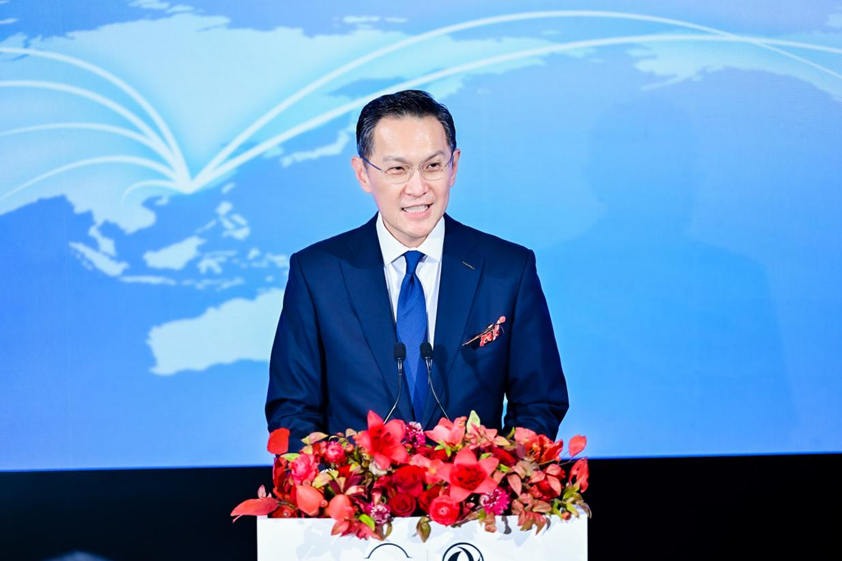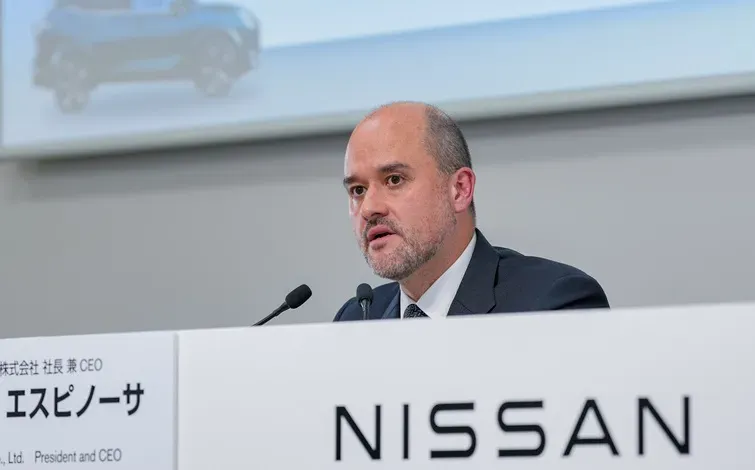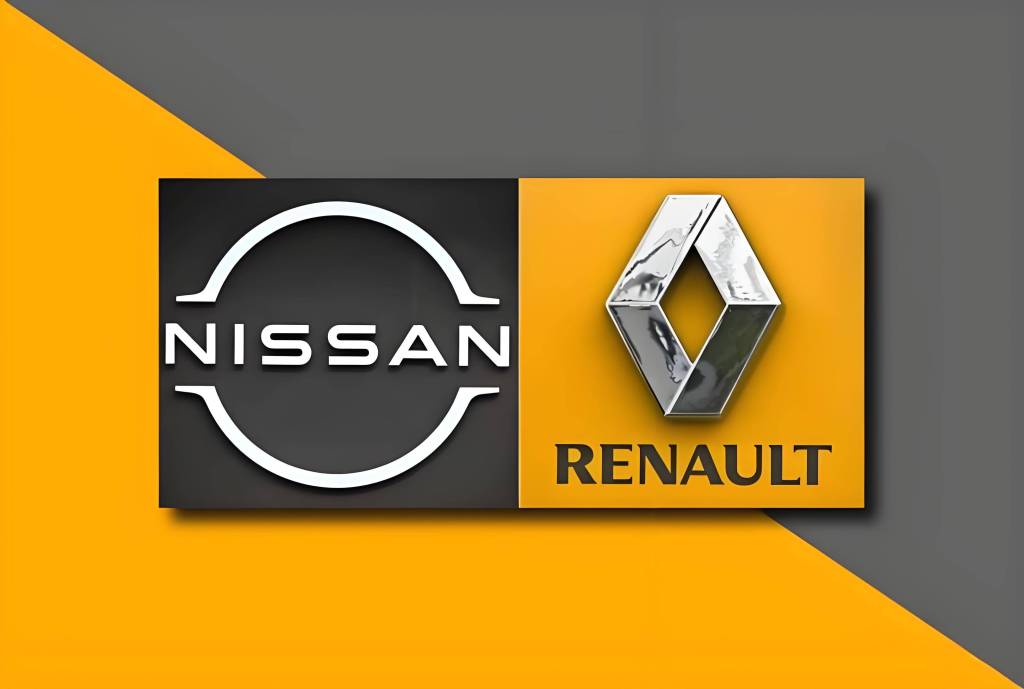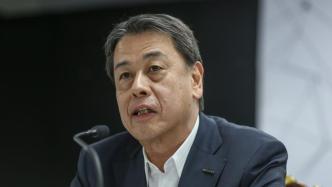
In May 2020, Makoto Uchida, who had just taken over as CEO of Nissan Motor for five months, announced a four-year transformation plan called Nissan Next within the company.
March 31, 2024 is the last day of Nissan Next, and the goal set by Makoto Uchida that year will also be realized on this day.
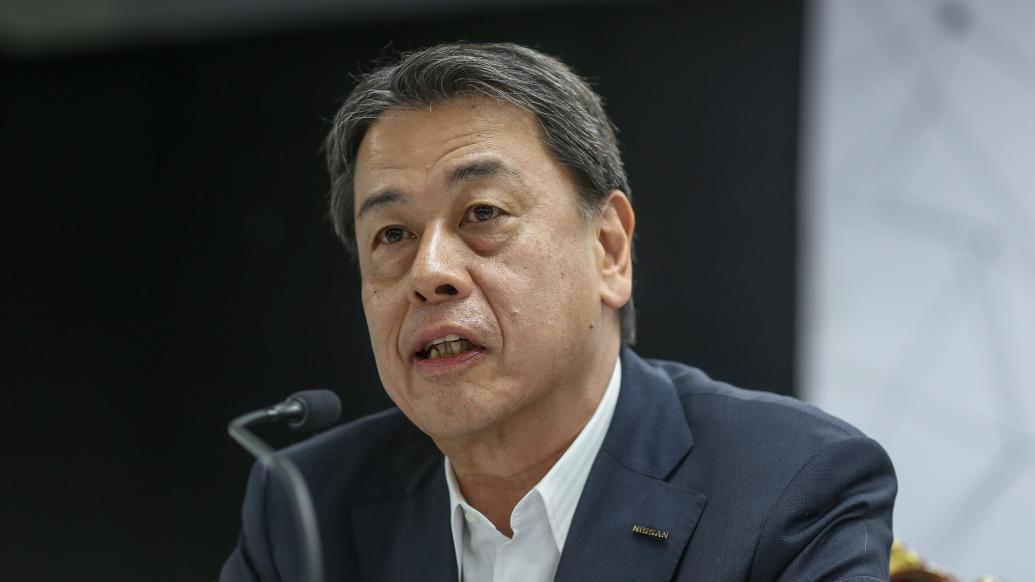
Nissan Motor CEO Makoto Uchida delivered a speech in Chennai, India, on March 27, 2024, local time.
Within the Nissan system, the fiscal year runs from April 1 of the previous year to March 31 of the following year. One of Uchida Makoto's goals four years ago was to achieve a 5% operating profit margin and a sustainable global market share of 6% by fiscal 2023.
On May 10, Nissan released its 2023 financial annual report, which showed that Nissan's global sales were 3.44 million vehicles, consolidated net income was 12.686 trillion yen (about 582.78 billion yuan), and operating profit was 568.7 billion yen (about 26.13 billion yuan), a year-on-year increase of 50.8%; operating profit margin increased from 3.6% in the previous fiscal year to 4.5%; Nissan Motor Company's net income was 426.6 billion yen (about 19.60 billion yuan), a year-on-year increase of 92.2%; the automotive business had net cash of 1.546 trillion yen (about 71.02 billion yuan).
Regarding the performance growth, Nissan said it was mainly due to "increased sales, increased unit net sales and strict control of fixed costs", while the weak yen also brought "short-term" growth momentum.
Despite the growth in financial figures, Nissan failed to complete the Nissan Next corporate transformation plan as scheduled.
"Through the 'Nissan Next corporate transformation plan', we have been strengthening the foundation of our business. Starting from fiscal 2024, the company launched a new strategy 'The Arc', and our goal is to achieve sustainable and profitable growth while providing high value to customers." Makoto Uchida said that the company will implement the best business strategy based on market conditions and customer needs, and gradually achieve this goal through a balanced product portfolio.
It is worth noting that Nissan's sales in the US, Japan and European markets have all achieved varying degrees of growth, but it faces severe challenges in the Chinese market.
As Nissan's largest single market, sales in the Chinese market account for more than 20% of Nissan's global sales. However, with the rise of Chinese electric vehicle brands, Nissan's sales in China have gradually declined. In 2023, Nissan's sales in China were 793,800 vehicles, down 24.05% year-on-year, falling below the one million mark for the first time in nine years. This has to some extent dragged down the performance of Dongfeng Group, which suffered its first loss since its listing in 2005.
Makoto Uchida took over as CEO of Nissan on December 1, 2019. He joined Nissan Motor Company in 2003 and worked in the purchasing departments of Nissan Motor Company and Renault-Nissan-Mitsubishi Alliance for many years. In April 2018, he succeeded Jun Seki as President of Dongfeng Motor Corporation. In April 2019, he was promoted to member of Nissan Motor's Executive Committee and Chairman of Nissan China Management Committee. Before becoming CEO of Nissan, he was a member of Nissan Motor's Executive Committee, Senior Vice President, Chairman of Nissan China Management Committee, and President of Dongfeng Motor Corporation.
In the four years since Makoto Uchida took office, has Nissan's situation improved? Has it achieved its goals? According to foreign media reports, he gave himself a "B" for his performance over the past four years.
His performance is evaluated from the following dimensions.
In terms of products and brands, he reduced the number of Nissan's global brands from 69 to around 55, a 20% reduction, and shortened the average product life cycle to less than four years. Nissan closed its entry-level brand Datsun in other emerging markets and withdrew from the Korean market, among other measures. Over the past four years, Nissan has reduced its original brands to a suitable size, focusing on four major markets, and the average product production cycle is now less than four years.
In terms of factory capacity, Nissan Next aims to reduce global capacity by more than 20% from 7.2 million vehicles to 5.4 million vehicles; increase production utilization from 70% at the time to more than 80%; close factories in Indonesia and Barcelona, Spain, and optimize North American factories. In fact, Nissan closed factories and shut down production lines. But Nissan's global capacity utilization rate still hovered around 68% in the last fiscal year, and management hopes to achieve at least 90% capacity utilization under the "The Arc" project.
In terms of sales, Nissan Next aimed to increase global sales by 9.1%, equivalent to about 5.4 million vehicles. This goal was not achieved. Annual sales in fiscal 2023 actually shrunk to 3.4 million vehicles. Under The Arc plan, Uchida hopes to add another 1 million vehicles by the fiscal year ending March 31, 2027, which means a sales target of at least 4.4 million vehicles in the next three years, which is still lower than Nissan Next's original goal.
In terms of finance, Nissan's goal at the time was to achieve an operating profit margin of 5% and a market share of 6% by March 31, 2024. In fact, in the first year, March 2020, Nissan achieved a global market share of 5.8%, but its operating profit margin in fiscal 2023 was 4.5%, which was slightly away from the target. In terms of global market share, it has shrunk to around 4%.
In terms of electrification, the original plan was to launch eight all-electric vehicles by 2023 and expand the application of the e-Power series of hybrid vehicles to the compact and ultra-compact segments in various regions; the goal is to achieve 1 million new energy sales by March 31, 2024; Japan's domestic new energy penetration target is 60%, 50% in Europe, and 23% in China; Infiniti's high-end brand will have its own high-performance version of the e-Power series of hybrid vehicles.
The reality is that Nissan has five all-electric models in the world, not including those produced by Chinese joint ventures. They are the Leaf hatchback, the Ariya crossover, the Sakura minicar, the Townstar van and the Clipper minivan. Nissan has only achieved half of its 1 million all-electric sales target.
By the end of March 2024, the final year of Nissan Next, Nissan said it had sold 130,000 electric vehicles and produced 390,000 models equipped with e-Power technology. Although no sales figures were provided for e-Power, sales of the two powertrains combined reached 520,000 units.
Nissan's penetration rate in Japan is 52%, and in Europe it is close to 45%, but in China it is far from the original target. Chief Financial Officer Stephen Ma said that in the Chinese market, Nissan brand electric vehicles only have one, Ariya, and the new energy penetration rate is only 6%, and this total does not include electric vehicles sold by Nissan's local joint ventures. The penetration rate in the United States is not part of the Nissan Next plan, but the electrification rate in the United States is as low as 2.4%.
Nissan will then enter the next phase with "The Arc" as its goal, and Uchida Makoto will continue to improve various indicators, especially in the Chinese market.
"The price war in the Chinese auto market has been very fierce in the past year and will continue this year. Nissan must adopt a localization strategy to maintain its advantage in the market and meet challenges," said Makoto Uchida.
(Original title: "Makoto Uchida has been at the helm of Nissan for over 4 years. Is he qualified?")
